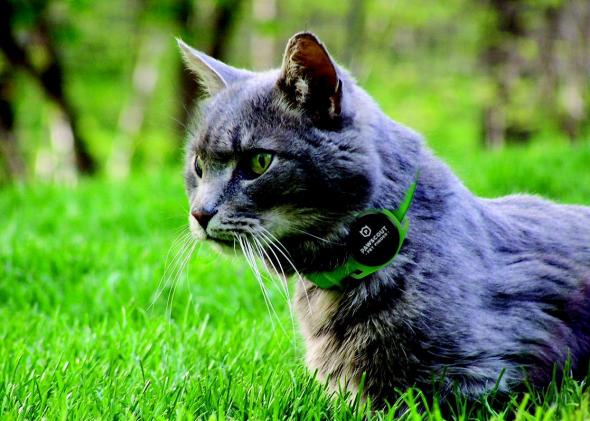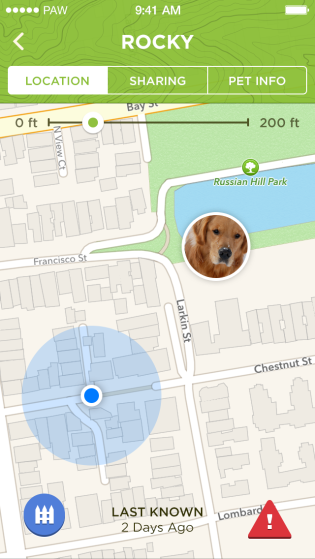Finding Fido: New App Can Help You Track Down Your Lost Furry Friend
Reprinted from 

Pawscout
More than 10 million pets are lost each year, and sadly only one in 10 is ever recovered. This is 2014. We can do better.
A new company called Pawscout thinks so, too. Rather than building on traditional pet-locating methods like microchipping, it’s created a separate connected pet ID tag that tracks your pet’s location by creating a mesh network of smartphones.
“How people find pets is still a community problem,” Pawscout founder Andrea Chavez told Wired. “If you don’t have a community, the whole thing falls down.”
Pawscout aims to create this community first by getting its tag onto pets. The tag costs $30 and is available for preorder through its website, and will ship in February. At that price, it’s something you can actually see being sold at Petco and other places where pet owners shop.

Screenshot: Pawscout/Wired
Pawscout’s also trying to develop this community via a free mobile app. Here, pet owners can create a profile of their dog or cat with key information including breed, personality traits, and whether it has any health or behavioral issues, or medicinal needs. The app will be able to tell you how close your pet is within a 250-foot Bluetooth range. If you’re out at the dog park, or tying your mutt up outside a cafe, you can set up a virtual leash that alerts you if they get outside a preset perimeter.
But it’s when you put the app in lost mode that the full utility of Pawscout comes out. Chavez says they spent a tremendous amount of time and effort perfecting the platform so that it tracks real-time data and relays it meaningfully and simply. In lost mode, anyone who has the app and comes within 250 feet of your pet can be notified that your pet is lost. Through mesh networking, your pet’s location is updated and relayed to you.
Unfortunately, as with all mesh networking schemes, there’s a bit of a chicken-or-egg problem. When everyone is using this, there will be a lovely network covering the globe (or at least your neighborhood) so that whenever a pet escapes, it can be located, retrieved, and reunited with its owner. But until a critical mass start using the app, the benefits of Pawscout are minimal to nonexistent.
Luckily you don’t need to purchase a tag, or even own a pet, to help out. If you want to help pet-owning friends, family, or neighbors in the future, you can download the app, too. App users can elect to be notified if a lost pet wanders into their 250-foot detection bubble, at which point they’ll get the lost pet’s owner’s contact information. You can also choose to have your phone act passively as a node in the network, allowing the pet owner another chance for a phone to pick up their pet’s tag and relay its location. Either way, just by downloading the app, you could end up helping someone find their missing four-legged friend.
The Pawscout tag itself is powered by a standard watch battery that should last a year, and the app will warn you before the battery dies. The back of the device can also be patterned or engraved, like a normal pet tag. It attaches to a collar, or you can buy a separate flush mount so the tag lies flat against your pet’s neck instead of dangling.
Pawscout will be partnering with the ASPCA so that its technology can get into the hands of more new pet owners.
More from Wired:
Future Tense is a partnership of Slate, New America, and Arizona State University.
